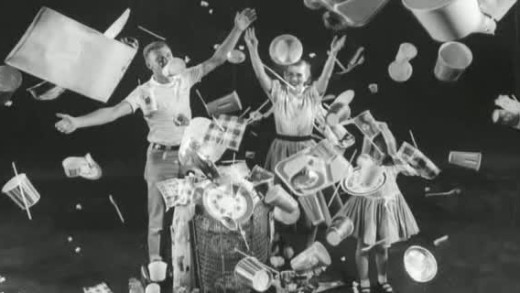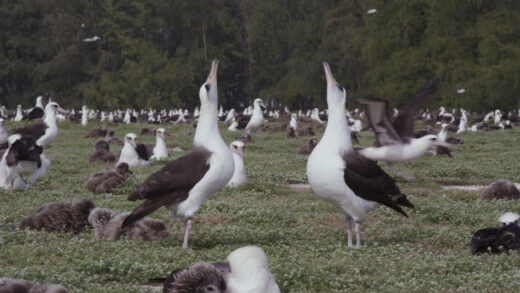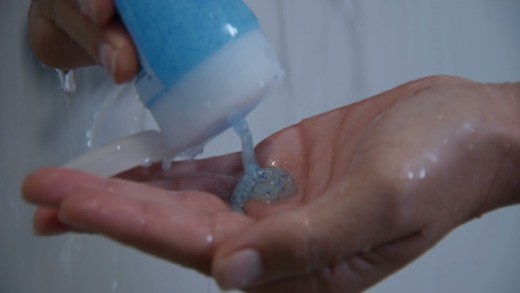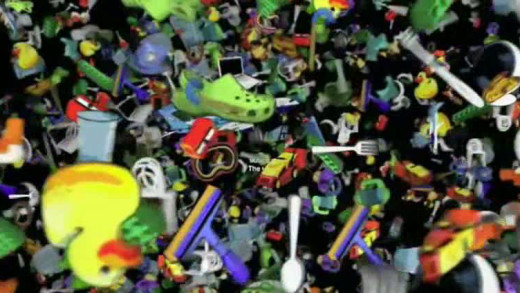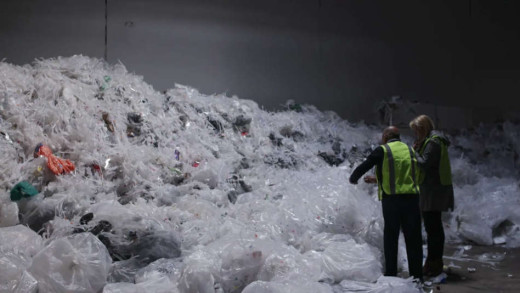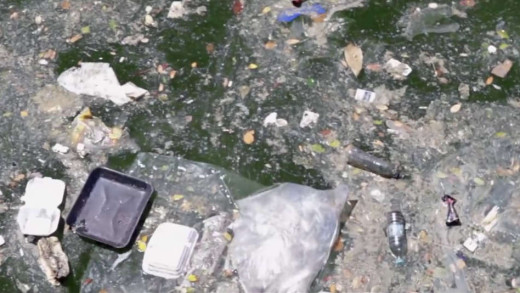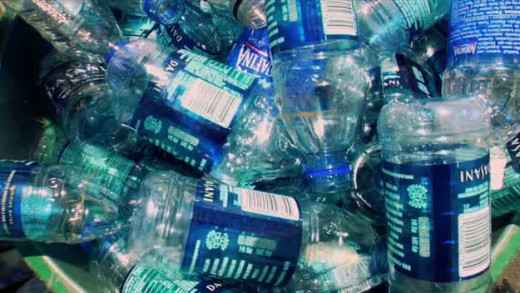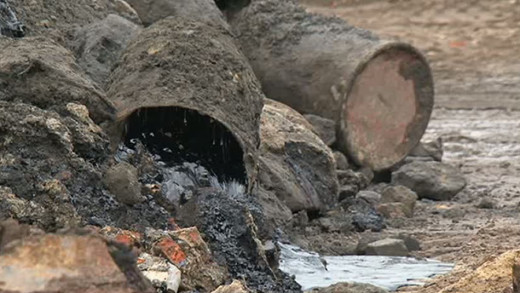From styrofoam cups to artificial organs, plastic is perhaps the most ubiquitous and versatile material ever invented -- no product in the past 100 years has had more a profound influence and presence than synthetics. But such 'progress' has a cost -- no ecosystem or segment of human activity has escaped the strangling grasp of plastic. Addicted To Plastic investigates what we really know--and don't know--about this material. Talking to manufacturers, recyclers, cleaners, scientists and others, Addicted To Plastic shows plastic's toxic legacy and devastating ecological impact, provoking serious questions about health, food and the environment...
Albatross is a collaborative film project with artist Chris Jordan and photographer Manuel Maqueda. The film is the culmination of many years of research and study of the issue of ocean plastic pollution, with a paricular focus on how it effects species of Albatross on a tiny atoll in the centre of the vast North Pacific Ocean. The resulting film is an experience that is devastating, not only for the plight of suffering birds, but also for what this crisis reflects back about the destructive power of the culture of mass consumption, and its damaged relationship with the living world.
Fuelled by popular personalities on Instagram, YouTube and Snapchat, cosmetic surgery is pushing further into the mainstream. Huge numbers of people, predominantly young women, are choosing to alter their appearance forever as though it's as simple as buying a new set of clothes. Social-media "influencers" get free procedures in exchange for promoting certain doctors or agencies or products to their audiences. Going on the numbers alone, audiences seem to respond to this blatantly cacophonous advertising, following their social media stars closely, and taking out huge personal loans to get surgery and "keep up with the Kardashians." Doctors offering the surgery are even becoming media stars themselves, and it's redefining the meaning of doctor/patient relations. Underpinning this entire industry, is a business model of targeting women who can barely afford procedures by selling the dream of a "new you." Social-media laps it up, and the cycle repeats. But as this investigation shows, when things go wrong, the physical and financial costs are devastating. Real doctors who are left to pick up the pieces, are warning that the booming industry is creating a dangerous legacy, and not just to the concept of beauty.
Corporations On Trial is a five-part series following just some of the many lawsuits being brought against multinational corporations for war crimes, conspiracy, corruption, assassinations, environmental devastation and payments to terrorists. Such serious charges have forced some of the world's largest companies to hire high-profile defence lawyers to protect public relations in cases often brought by plaintiffs who are barely literate. These five films reveal a growing anxiety about the power and influence of big business, as many multinational corporations have annual revenues greater than some countries' national budgets and indeed increasingly hold governments to ransom by their economic power. Around the world, ordinary people are fighting back and asking how many more times their interests should be sacrificed for corporate greed and shareholder profit...
The microbeads of plastic contained in cosmetics, shower gels, soaps, toothpastes, and many other products, of course directly end up in rivers and oceans, fish and birds, as well as other creatures of the sea and indeed land. But if that isn't problematic enough, these tiny plastics are only part of the bigger problem of plastic prolifically choking the ocean to death. For all plastics, big or small, break down and fail into smaller plastic particles, having cumulative biological and toxicological effects. This short television report takes a quick look into how marine life is effected by all this, and why we should do something about it before it's too late.
Plastic Planet is an up close and detailed examination of one of the most ubiquitous materials of our age, the plastic age. This controversial and fascinating material has found its way into every facet of our lives, literally. Plastic Planet takes us on a journey around the world, showing that plastics are a threat for human health and the ecosystems of the planet...
Despite decades of environmental impacts and campaigning for bans and other regulations, the plastic industry continues to expand. From 1990 to 2010 alone, production of plastics more than doubled. Fracking has provided cheap natural gas which is also driving down the cost of making plastic. The United States is now one of the world's largest plastic producers, and industry is investing tens of billions of dollars in new plastic plants. By 2050, it's estimated that global production of plastic will triple. Alongside, the industry has pushed a greenwashing image of recycling to fend off negative public opinion, and sell more plastic. Plastic Wars examines how this has come to be, using industry documents and former insiders, and presents the urgency of the need for change, now more than ever.
Plasticized follows an ocean journey with the 5 Gyres Institute, a non-profit organisation that focuses on reducing plastics pollution through research. The expedition was the first scientific journey looking at plastic waste across the South Atlantic Ocean. The film takes a look at one of the institute's global missions: studying the effects, reality and scale of plastic pollution around the world. The boat skims the surface of the ocean by trawling, in order to examine the toxic effects of plastic pieces to tissues of marine life. Many tiny bits of plastic are found contaminating the waters, and they're sometimes not seen because the rough waters push them down. Every few kilometres, one teaspoon of plastic is collected. This may not seem like much, but this amount adds up substantially, considering that the ocean is vast and covers two-thirds of the planet.
Tapped shows the hidden affects of the bottled water industry by documenting the impacts to the environment from plastic bottles, pollution from production, right down to the impact on the communities, land and people from which the water is taken...
Did you know that the legal system recognises a corporation as a person? What kind of 'person' is it then? What would happen if it sat down with a psychologist to discuss its behaviour and attitude towards society and the environment? Explored through specific examples, this film shows how and why the modern-day corporation has rapaciously pressed itself into the dominant institution of our time, posing big questions about what must be done if we want a equitable and sustainable world. What must we do when corporations are psychopaths?
Barbie, H&M jeans, everyday corn--just some of the products recalled due to controls on the use of dangerous chemicals as a wave of legal cases over toxicity is calling manufacturing of certain products into question. The Toxins Return follows the trail from field worker, to customs, to the high street shopper--how much can we trust all these products?
